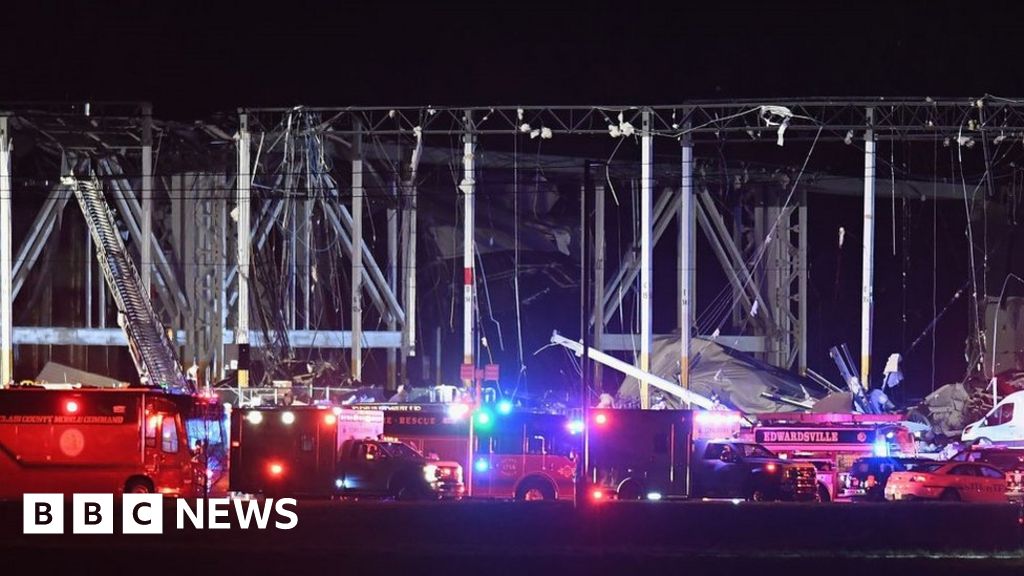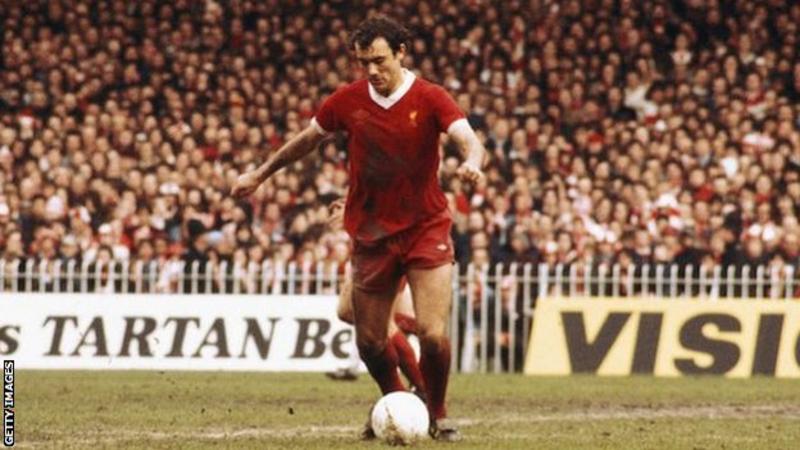India farmers end protest after government accepts demands

Thousands of farmers had camped at the borders of the capital, Delhi, with dozens dying from heat, cold and Covid.
They will begin returning to their homes from Saturday.
The movement had become one of the biggest challenges for Prime Minister Narendra Modi's government.
The farmer groups took the decision after ministers agreed to discuss their other demands, including guaranteed prices for produce and a withdrawal of criminal cases against protesting farmers.
Modi backs down after year-long farmer protests
Why PM Modi rolled back India's vexed farm laws
"We will hold a review meeting on 15 January. If the government doesn't fulfil its promises, we may resume the protest," farmer leader Gurnam Singh Charuni told local media.
The farmers were protesting against the government's introduction of three laws that loosened rules around sale, pricing and storage of farm produce - rules which have protected them from the free market for decades.
Farm unions said these laws would leave farmers vulnerable to big companies and destroy their livelihoods.
After months of insisting that the reforms would benefit farmers, Mr Modi announced on 19 November that his government would repeal the laws.
A bill to cancel the reforms was officially passed in parliament on 30 November.
The move was hailed as a victory for farmers and also as a powerful example of how mass protests could still successfully challenge the government.
But farmers did not leave the protest sites immediately after Mr Modi's announcement. They said they would continue to protest until the government agreed to their other demands.
On Thursday, the government gave a formal letter to farm leaders, accepting many of these.
An elderly demonstrator looks on from a tent on a blocked section of a highway as farmers continue to camp in protest
IMAGE SOURCE,GETTY IMAGES
Image caption,
Thousands of farmers have camped at Delhi's borders, braving the cold, heat and Covid
The government also agreed to provide compensation to the families of the farmers who died during the protest. This is also being seen as a win for farm unions as the government had told parliament last week that it had no record of the number of farmers who died during the protests.
On the demand for a minimum support price (MSP), the government has promised to form a committee which will include representatives from the federal and state governments, agriculture scientists and farmer groups.
The protests first gained momentum in November last year when farmers tried to march into Delhi but were stopped by police at the city's borders. Since then, they had stayed at the edge of the city against all odds - braving scorching heat, a bitter winter and even a deadly second wave of Covid.
Farmers form the most influential voting bloc in India - and experts say the upcoming state elections in Punjab and Uttar Pradesh may have forced the government to roll back the laws.
Farmers gather to mark the first anniversary of their protest against the controversial farm laws
IMAGE SOURCE,GETTY IMAGES
Image caption,
The protests posed one of the biggest challenges to Narendra Modi's government
What did the laws offer?
One of the biggest changes was that farmers were allowed to sell their produce at a market price directly to private players - agricultural businesses, supermarket chains and online grocers. Most Indian farmers currently sell the majority of their produce at government-controlled wholesale markets or mandis at assured floor prices (also known as minimum support price or MSP).
The laws allowed private buyers to hoard food like rice, wheat and pulses for future sales, which only government-authorised agents could do earlier.
The defining image of farmers' protest in India
India farmers strike to press for repeal of laws
The reforms, at least on paper, gave farmers the option of selling outside of this so-called "mandi system". But the protesters said the laws would weaken the farmers and allow private players to dictate prices and control their fate. They said the MSP was keeping many farmers going and without it, many of them will struggle to survive.
They said India's stringent laws around the sale of agricultural produce and high subsidies had protected farmers from market forces for decades and there was no need to change that.
But the government argued that it was time to make farming profitable for even small farmers and the new laws were going to achieve that.
Thousands of farmers had camped at the borders of the capital, Delhi, with dozens dying from heat, cold and Covid.
They will begin returning to their homes from Saturday.
The movement had become one of the biggest challenges for Prime Minister Narendra Modi's government.
The farmer groups took the decision after ministers agreed to discuss their other demands, including guaranteed prices for produce and a withdrawal of criminal cases against protesting farmers.
Modi backs down after year-long farmer protests
Why PM Modi rolled back India's vexed farm laws
"We will hold a review meeting on 15 January. If the government doesn't fulfil its promises, we may resume the protest," farmer leader Gurnam Singh Charuni told local media.
The farmers were protesting against the government's introduction of three laws that loosened rules around sale, pricing and storage of farm produce - rules which have protected them from the free market for decades.
Farm unions said these laws would leave farmers vulnerable to big companies and destroy their livelihoods.
After months of insisting that the reforms would benefit farmers, Mr Modi announced on 19 November that his government would repeal the laws.
A bill to cancel the reforms was officially passed in parliament on 30 November.
The move was hailed as a victory for farmers and also as a powerful example of how mass protests could still successfully challenge the government.
But farmers did not leave the protest sites immediately after Mr Modi's announcement. They said they would continue to protest until the government agreed to their other demands.
On Thursday, the government gave a formal letter to farm leaders, accepting many of these.
An elderly demonstrator looks on from a tent on a blocked section of a highway as farmers continue to camp in protest
IMAGE SOURCE,GETTY IMAGES
Image caption,
Thousands of farmers have camped at Delhi's borders, braving the cold, heat and Covid
The government also agreed to provide compensation to the families of the farmers who died during the protest. This is also being seen as a win for farm unions as the government had told parliament last week that it had no record of the number of farmers who died during the protests.
On the demand for a minimum support price (MSP), the government has promised to form a committee which will include representatives from the federal and state governments, agriculture scientists and farmer groups.
The protests first gained momentum in November last year when farmers tried to march into Delhi but were stopped by police at the city's borders. Since then, they had stayed at the edge of the city against all odds - braving scorching heat, a bitter winter and even a deadly second wave of Covid.
Farmers form the most influential voting bloc in India - and experts say the upcoming state elections in Punjab and Uttar Pradesh may have forced the government to roll back the laws.
Farmers gather to mark the first anniversary of their protest against the controversial farm laws
IMAGE SOURCE,GETTY IMAGES
Image caption,
The protests posed one of the biggest challenges to Narendra Modi's government
What did the laws offer?
One of the biggest changes was that farmers were allowed to sell their produce at a market price directly to private players - agricultural businesses, supermarket chains and online grocers. Most Indian farmers currently sell the majority of their produce at government-controlled wholesale markets or mandis at assured floor prices (also known as minimum support price or MSP).
The laws allowed private buyers to hoard food like rice, wheat and pulses for future sales, which only government-authorised agents could do earlier.
The defining image of farmers' protest in India
India farmers strike to press for repeal of laws
The reforms, at least on paper, gave farmers the option of selling outside of this so-called "mandi system". But the protesters said the laws would weaken the farmers and allow private players to dictate prices and control their fate. They said the MSP was keeping many farmers going and without it, many of them will struggle to survive.
They said India's stringent laws around the sale of agricultural produce and high subsidies had protected farmers from market forces for decades and there was no need to change that.
But the government argued that it was time to make farming profitable for even small farmers and the new laws were going to achieve that.

More than 50 feared dead in Kentuckys worst ever tornadoes
- The governor of the US state of Kentucky has warned that more than 50 people are thought to have been killed by tornadoes overnight.

Putin to mull options if West refuses guarantees on Ukraine
- Russian President Vladimir Putin said Sunday he would ponder a slew of options if the West fails to meet his push for security guarantees.

Ray Kennedy: Former Liverpool and Arsenal midfielder dies aged 70
- Former Liverpool and Arsenal midfielder Ray Kennedy has died at the age of 70. News Now 2021

Ethiopia is at war with itself. Heres what you need to know about the conflict
- Ethiopia is at war with itself. Heres what you need to know about the conflict Ethiopia is at war with itself. Heres what you need to know about the conflict